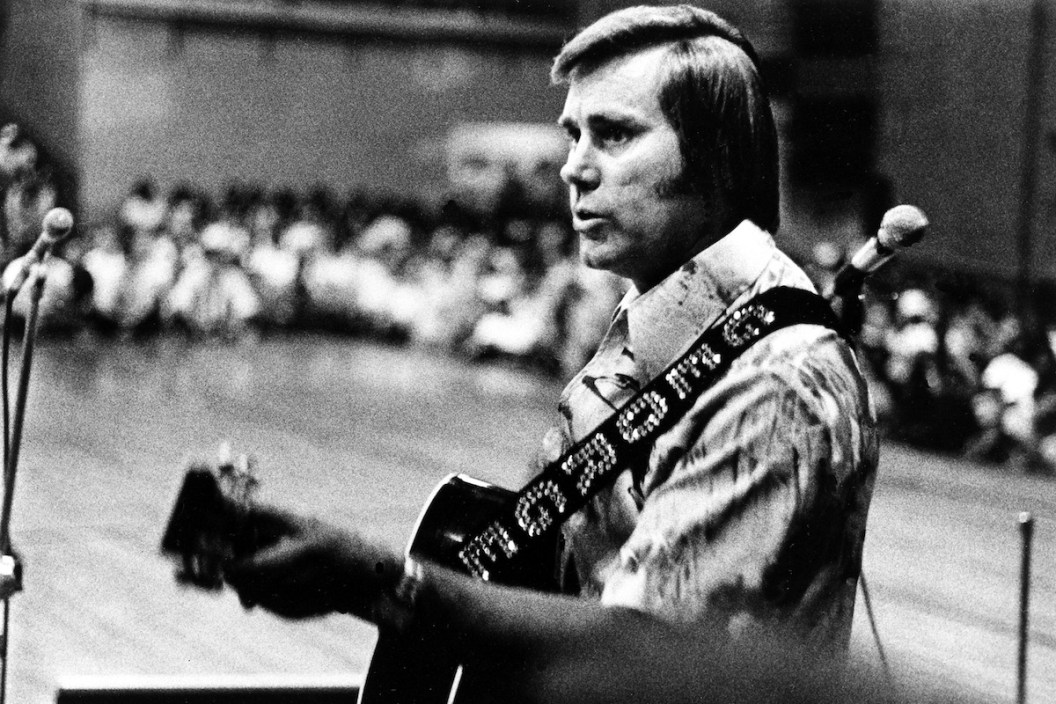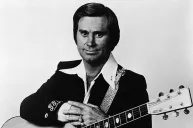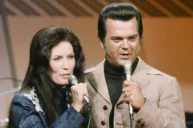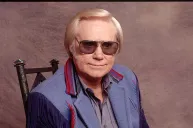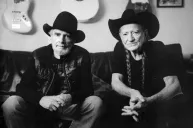[dropcap]G[/dropcap]eorge Jones was arguably the best voice in the history of country music. He could make you cry with a single note or a simple phrasing and came to embody the spirit of the genre. And while his struggles with addiction would become part of the "No Show Jones" mythology, the real George Jones was much more than his demons. He was a father, a husband, a friend and a man who proved it's never too late to change your life.
Here are five George Jones stories that capture who he really was.
5. His Commitment to Traditional Country Music
George Jones fell in love with country music at the age of 7, when his parents bought a radio and he heard the Grand Ole Opry for the first time. But the moment he heard Hank Williams sing, he was hooked. When Jones was working at a small Texas radio station as a teenager, he met Williams. The meeting only heightened Williams' influence on the singer.
He remained a fierce supporter of traditional country music throughout his life. He was so devoted to maintaining his integrity as a country artist that he attempted to buy all the masters to the rockabilly records he recorded under the name "Thumper Jones." He was embarrassed by the records and wanted to keep them from being heard. (It didn't work.)
Jones was an outspoken critic of traditional country being pushed out in favor of pop country. When the Country Music Association refused to let him perform his song "Choices" in its entirety, he took it as a slight against him and the music he'd dedicated his life to. Jones refused to attend the ceremony. In a sly protest, Alan Jackson performed the song for Jones in his absence. Jones watched the show from home and was brought to tears by Jackson's act.
4. His Kindness and Generosity
Although he grew up poor, having money didn't mean much to Jones. He was just as likely to literally flush money down the toilet as he was to invest it. Although he could be frivolous with his spending, Jones really enjoyed giving away his riches to friends and strangers who were less fortunate. After his death, it was revealed that Jones had purchased 30 cemetery plots in Nashville's Woodlawn Cemetery for artists who died without money to cover funeral expenses.
Jones was also a friend to artists who were just starting out in the business. At his funeral, fellow country legend Barbara Mandrell remembered how Jones' encouraged her when she was a nervous and scared 13-year-old singer.
3. His Troubled Childhood
Jones' father, George Washington Jones, was a heavy drinker. He'd often come home drunk from the bar in the middle of the night, wake George up and demand that he sing for him. If he didn't perform, his father would threaten him with a beating. In an episode of CMT's Inside Fame, country music historian Robert K. Oermann said, "You would think that it would make him not a singer, because it was so abusively thrust on him. But the opposite happened; he became a chronic singer. He became someone who had to sing." Jones remained resentful toward his father throughout his life.
2. His Bond With Fellow Country Stars
George Jones was a country singer's singer. Everyone in Nashville and beyond loved the man they called the Possum. Merle Haggard said it was one of the greatest compliments of his life when George Jones called him his favorite country singer. The two became close friends, even releasing two duets albums, A Taste of Yesterday's Wine and Kickin' Out the Footlights...Again. Waylon Jennings once said, "If we could all sound like we wanted, we'd all sound like George Jones."
Waylon Jennings and Johnny Cash were longtime friends of the singer. Jennings and Cash even came to Jones' aide when he was bankrupt and living in his car.
Jones was also a supporter of the younger generation of country singers, particularly those who honored the genre's roots. In 1992, the Possum teamed up with Garth Brooks, Alan Jackson, Clint Black and more to record "I Don't Need Your Rockin' Chair." With the help of the next generation of country stars, Jones reminded the world that he wasn't done with country music.
Vince Gill, who Jones nicknamed "Sweet Pea," was one of Jones' closest friends. His performance with Patty Loveless of "Go Rest High On That Mountain" at Jones' funeral brought the whole room to tears.
Of course, Jones' most famous bond was with Tammy Wynette, his wife of five years. Although the couple had their ups and downs, they remained friends throughout their lives. They recorded 1995's One together 20 years after their divorce.
The 2008 release Burn Your Playhouse Down compiled Jones' unreleased duets with everyone from Marty Stuart to Keith Richards.
Read More: Randy Travis Joins the TikTok Generation
1. His Recovery
Everyone knows the infamous story of Jones driving the riding lawn mower to the liquor store, which has become synonymous with the Possum. But sadly, drinking was taking a tremendous toll on Jones' personal life and health. For a while, Jones' trouble with the bottle nearly defined him. He became known as "No Show Jones" after missing over 50 shows in one year.
It was fellow Country Music Hall of Fame talent Waylon Jennings, who had his own struggles with addiction, who came to Jones' aide at a particularly low point for the Possum. Jennings first helped Jones' get sober in the early 1980s, which helped him revive his career with perhaps his greatest song of all: 1980's "He Stopped Loving Her Today."
Jones remained sober for several years but continued to struggle with addiction. After his 1999 car wreck, Jones gave up drinking for good. He credited his wife Nancy for her support in helping him take on and finally defeat his demons.
This story previously ran on April 26, 2019.
